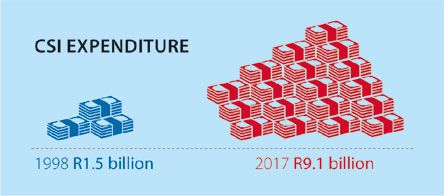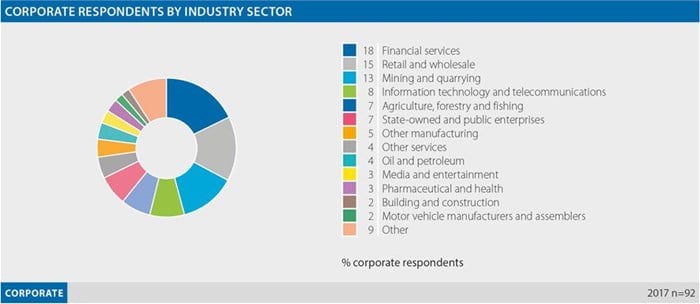
Top stories






More news


Marketing & Media
Ads are coming to AI. Does that really have to be such a bad thing?














The most popular social cause is education (accounting for almost half of CSI spend) followed by social and community development, and health.
This was announced today in Johannesburg at the launch of CSI consultancy Trialogue’s 20th annual publication, The Business in Society Handbook. It profiles the current state of CSI in South Africa, and draws on two decades of insight to propose future trends.
Mining, financial and retail corporations invest the most in society, together responsible for over 60% of the total spend. Over two-thirds of the companies surveyed by Trialogue in 2017 spent more than R10 million each on CSI, with 11 companies spending more than R100 million.
Trialogue MD Nick Rockey said that the proportion of companies (45%) that reported non-cash giving this year was higher than last year (35%). “Product and service donations accounted for the vast majority of this.”

He said companies mainly directed their CSI spending through non-profit organisations (NPOs) which received half of all CSI funds in 2017. Expenditure on government institutions (schools, universities, hospitals and clinics) constituted 25% of total CSI spend and government departments were allocated 8% of funds.
As part of its annual research, Trialogue asks corporates and NPOs to list three companies and three NPOs perceived to have the greatest developmental impact.
Companies ranked Vodacom first, followed by Nedbank and then Woolworths, while the NPOs ranked Nedbank first, followed by Old Mutual, then Vodacom. In a ranking of NPOs by companies, Gift of the Givers and Afrika Tikkun have alternated first and second positions since 2015.

Rockey said that future trends include increased integration of CSI with other divisions and functions in a company; a scaling back on the number of initiatives supported, to just one or a few flagship programmes; and the expectation that companies will take a stand on current social and political issues.
Alternative and blended financing models for development will become commonplace. In addition to traditional grant funding, there will be combinations of social enterprise funding, impact bonds, loan financing and crowdfunding.


Technology and data-driven solutions will increasingly be harnessed to address social issues. Companies will also strongly engage with external stakeholders who are included in, or affected by, both business and developmental activities.
“Buy-in from critical stakeholders such as government, on whom long-term success depends, will be sought before and as a condition of funds being committed to a project.”
The handbook is available for free download or hardcopy purchase at www.trialogue.co.za.